16 Horror Films Only LGBTQ People Truly Understand
10/01/19
By continuing to use our site, you agree to our Privacy Policy and Terms of Use.
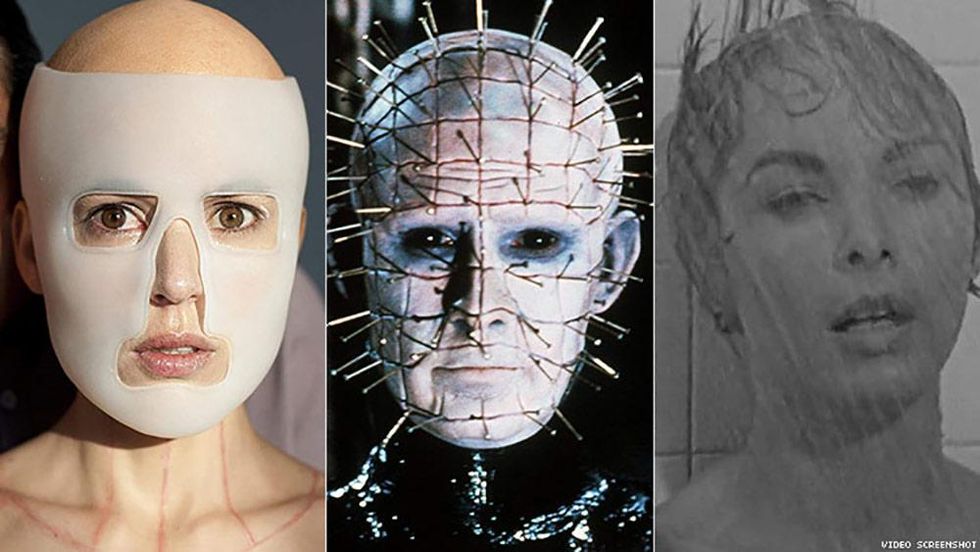
Since many of us have been demonized in our lifetimes, we have a special place in our hearts for the demons, monsters, and other outsiders who wreak havoc and revenge upon heteronormative society. But we also know what it's like to be victimized. And so the stakes of who survives and who persishes at the hands of evil can be even higher.
Due to this dynamic, there are some horror films in particular that speak to LGBTQ folks. Whether it's their victims or the villains, or perhaps just a sense of camp, we "get" them in ways most straight audiences can't. In celebration of Halloween, here's a list of 16 movies with LGBTQ themes that are naughty in the nicest ways.
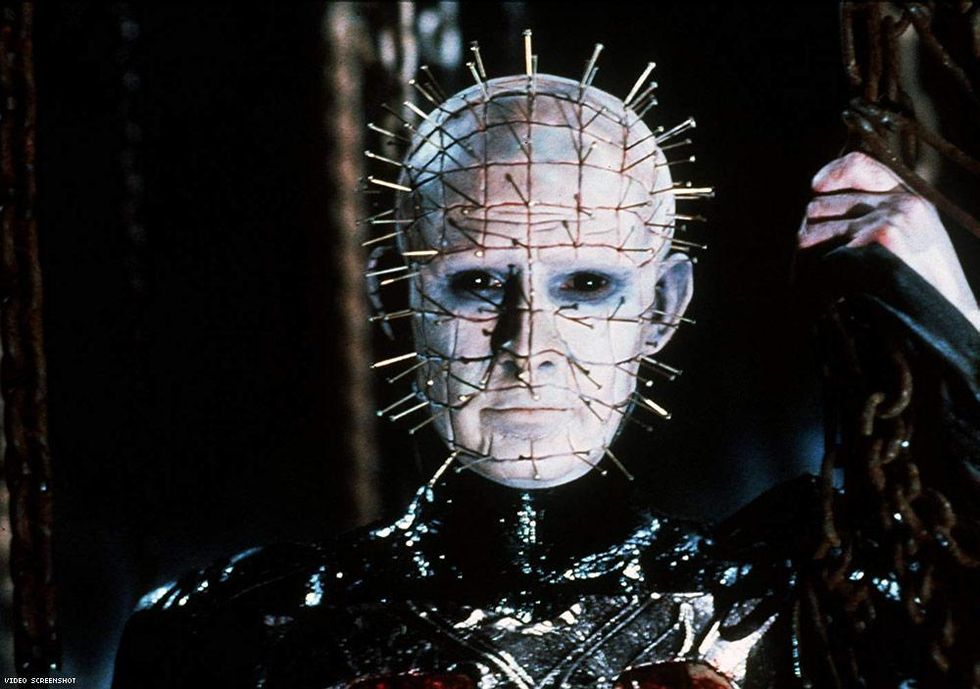
Maybe only a gay director like Clive Barker could have thought of a movie as inventive and twisted as Hellraiser. The film, also written by Barker, explores the all-consuming hunt for pleasure (something familiar to many gay and bi men), and how that desire can literally lead us to hell. There may be some AIDS allegories there, but the film is memorable more for its beautifully disgusting visuals, which include several homages to sadomasochism and a man literally torn to shreds. -- Neal Broverman
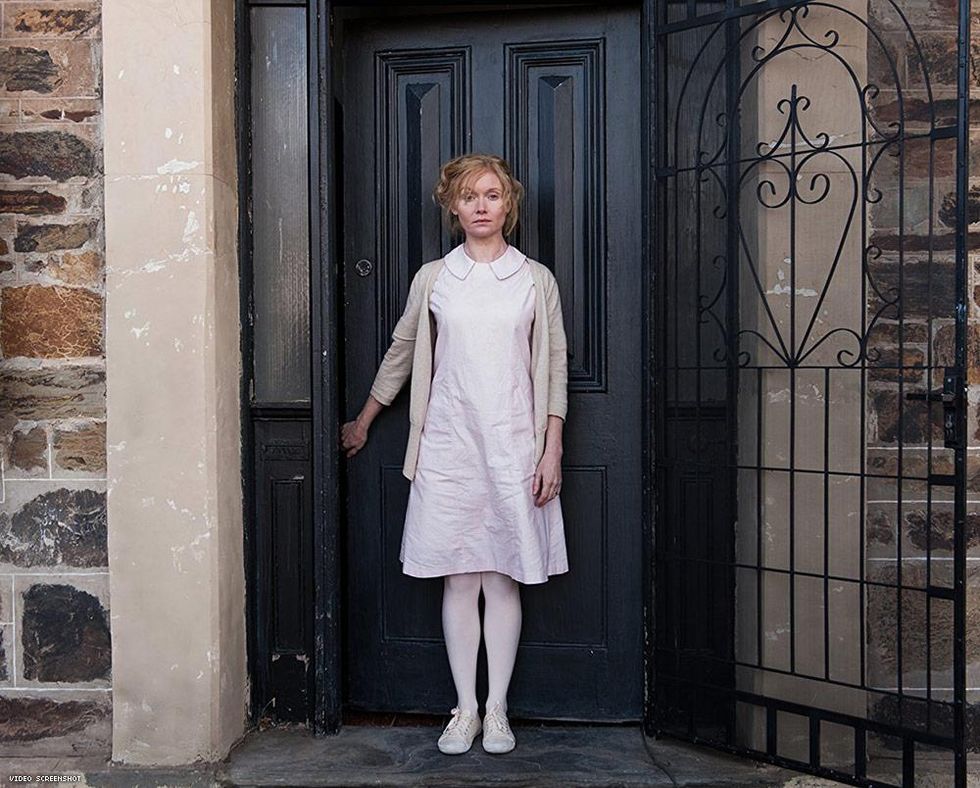
This film becoming queer is a happy accident - but that's the only thing happy about it. The 2016 story of a snaggletooth storybook monster who just won't disappear was found listed on Netflix's LGBTQ section. Rather than see the categorization as a mistake, queer people began to identify with the titular creature; shamelessly odd and unwanted, the Babadook tells the people who try to banish him, "I'll make you a bet. The more you deny, the stronger I get." Many now embrace the horrifying creature as a symbol for gay resilience in the face of homophobic "family values." Its confinement to the basement -- the family of the house knowing it's there but refusing to welcome it -- could also be interpreted as the closeting many queer children face from their families. In the end, The Babadook has made its way to many LGBTQ viewer's film libraries, Twitter feeds, and Pride parades. - Ariel Sobel
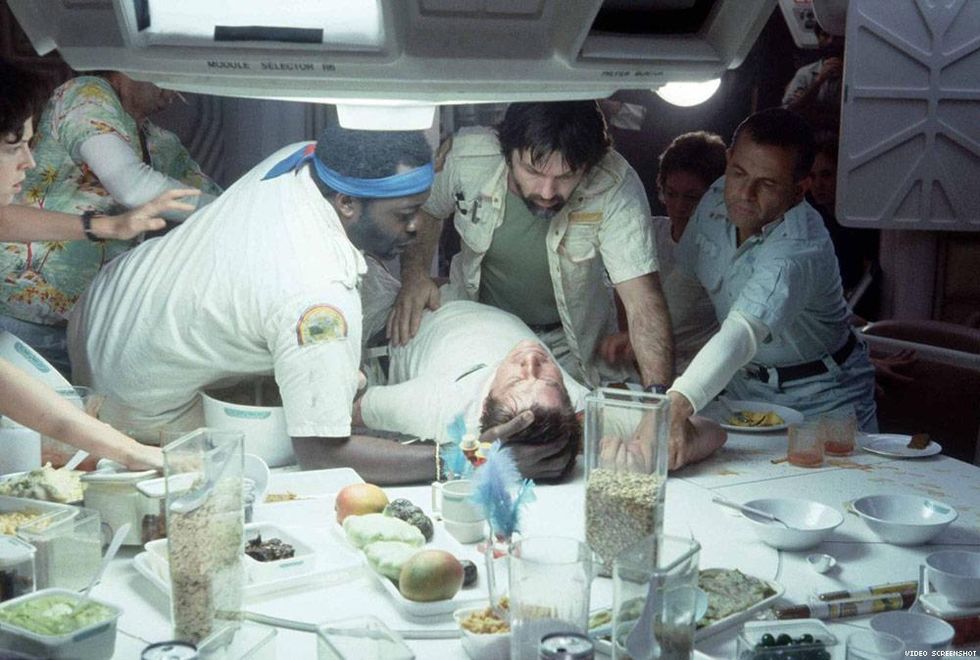
A devastatingly fetching Sigourney Weaver stars as Warrant Officer Ripley, whose formidable chops as an action hero would become the stuff of queer girls' fantasies for years to come. Beyond Weaver's obvious appeal to queer women -- the laconic sensibility, competence, strength, and those cheekbones, not to mention an entire scene toward the end of the film during which she battles the teeth-baring alien wearing nothing but a tiny tank top and underwear -- Alien peddles in feminist iconography of tunnels and dark spaces evoking vaginas, ovaries, and wombs, and it caps that off with recurring primal scenes of birth and rebirth. It's one thing to watch Alien for its mastery, but it's totally another thing to make an evening of discussing it with other queer girl film geeks. -- Tracy E. Gilchrist
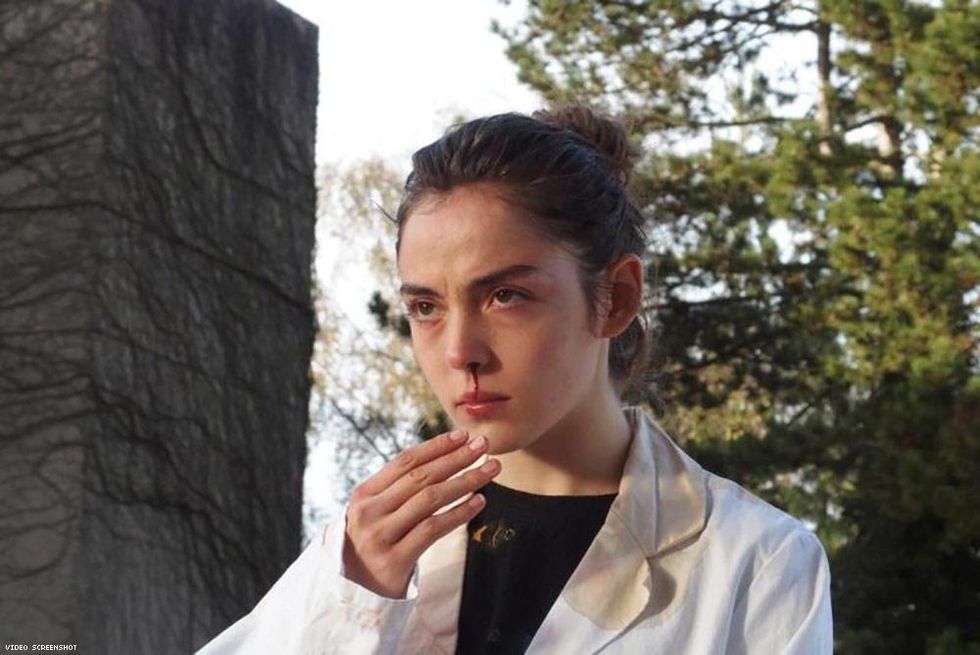
Arguably the best horror film written and directed by a woman, Julia Ducournau's bizarrely alluring flick about a student at a veterinary school who discovers she has an insatiable desire for human flesh is delightfully queer. Lifelong vegetarian Justine is forced to eat meat as part of a hazing ritual. Her adverse reaction to a carnivorous diet begets a necessity to eat people. With it grows a lust for her gay classmate Adrien, who she seduces, trying to bite him throughout the night. Eventually, Justine sleeps in the same bed as Adrien. She wakes up next to his corpse, with most of his right leg bitten off by her fellow cannibal sister. A strange allegory to how straight women consume gay men, objectifying them as pieces of meat, Raw is disturbingly queer in all the right ways and will leave you hungry for more. - Ariel Sobel
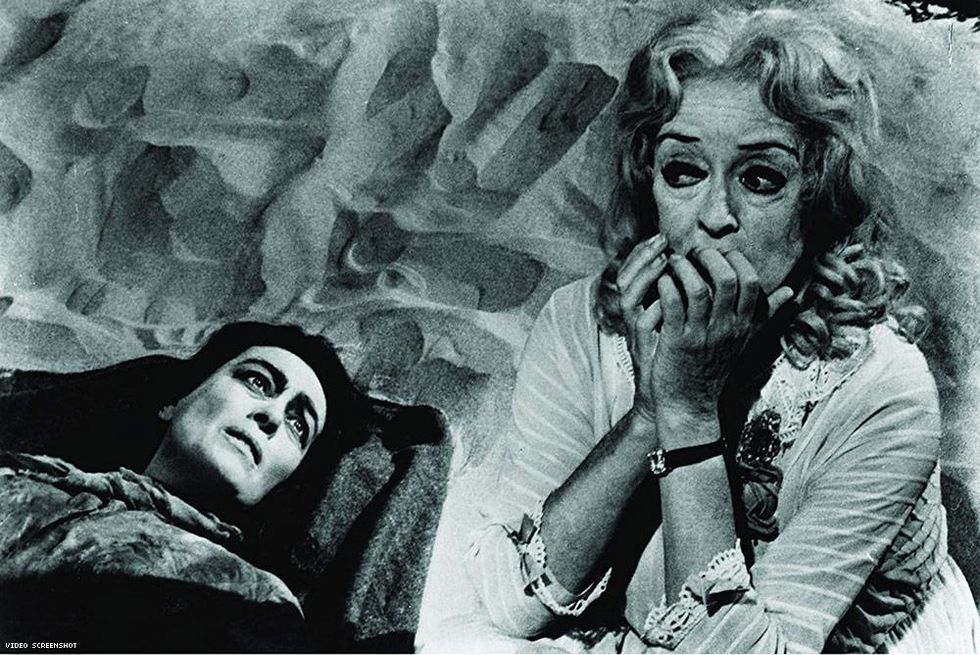
The queer community owes director Robert Aldrich and the famously feuding divas Bette Davis and Joan Crawford a million thanks for delivering one of the most enduring, quotable camp classics of all time. Davis plays aging child star Baby Jane Hudson, while Crawford stars as Blanche, an actress whose career jumped from vaudevillian child stardom to the big screen until she was "mysteriously" run down by a car, leaving her paralyzed, in a wheelchair, and vulnerable to her sister's twisted machinations while holed up in their decrepit mansion. Between crooning out hits like "I've Written a Letter to Daddy," accompanied by her creepy in-house pianist, Jane torments Blanche most memorably by killing her parakeet and serving it to her on a silver platter. Is there anything more deliciously awful than that? If that's not enough, we have Baby Jane to thank for the oft-quoted taunt, "But you are, Blanche, you are in that chair." -- Tracy E. Gilchrist
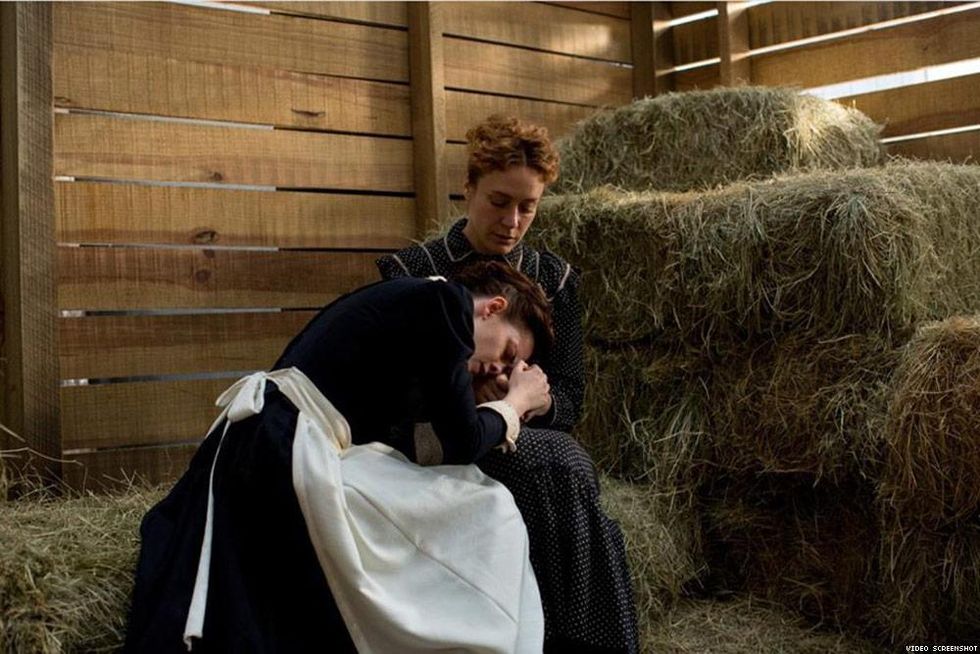
Starring beloved out starlet Kristen Stewart and longtime ally Chloe Sevigny, this lesbian retelling of Lizzie Borden is likely the most explicitly queer film on this list. The new flick explores the "real" motive behind Lizzie Borden's supposed murder of her parents in 1892 -- the ability to her be with her lover, the Bordens' maid. In the film, the two connect over their powerlessness. A housemaid subject to sexual abuse, Stewart plays a woman who can't write but has plenty to say. Sevigny's Lizzie is an unmarried New England woman past her perceived prime, forced to live under her father's possessive abuse. Together, in a bloody, sensitive, and erotic tale, the two empower and hear each other in the face of ruin. - Ariel Sobel
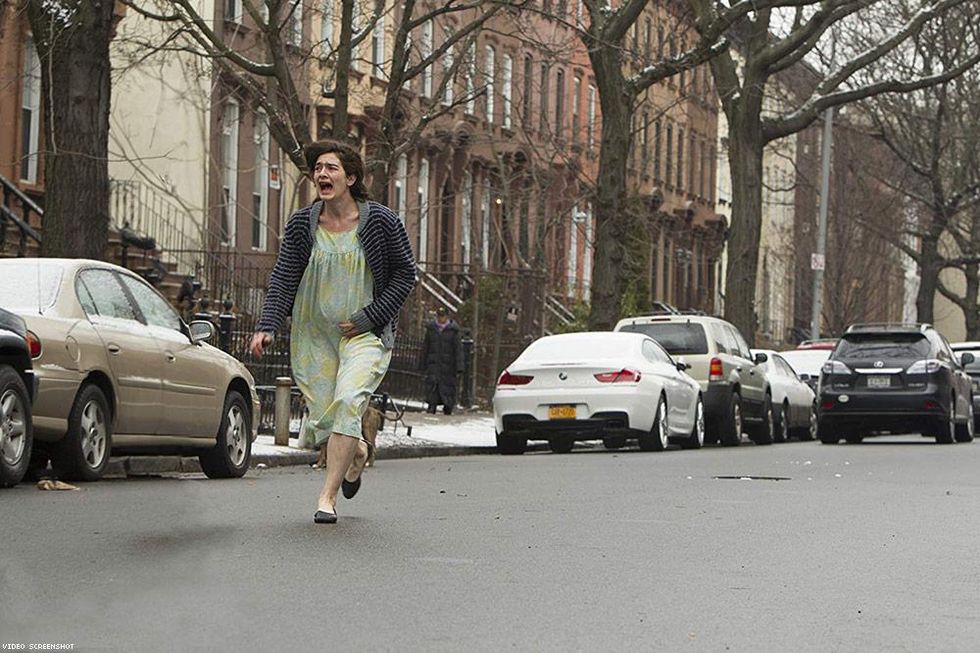
Lyle throws queer subtext out the window and switches it for something better -- an actual lesbian couple. The Ira Levin novel gets brought to life in this film adaptation and stars Transparent actress Gaby Hoffman as Leah, a pregnant stay-at-home mother, and Ingrid Jungermann as June, a successful record producer. The women struggle with the death of their daughter, Lyle (Elanor Hopkins) and the paranoia that their neighbors are in a cult and were behind Lyle's death. - Jessa Powers
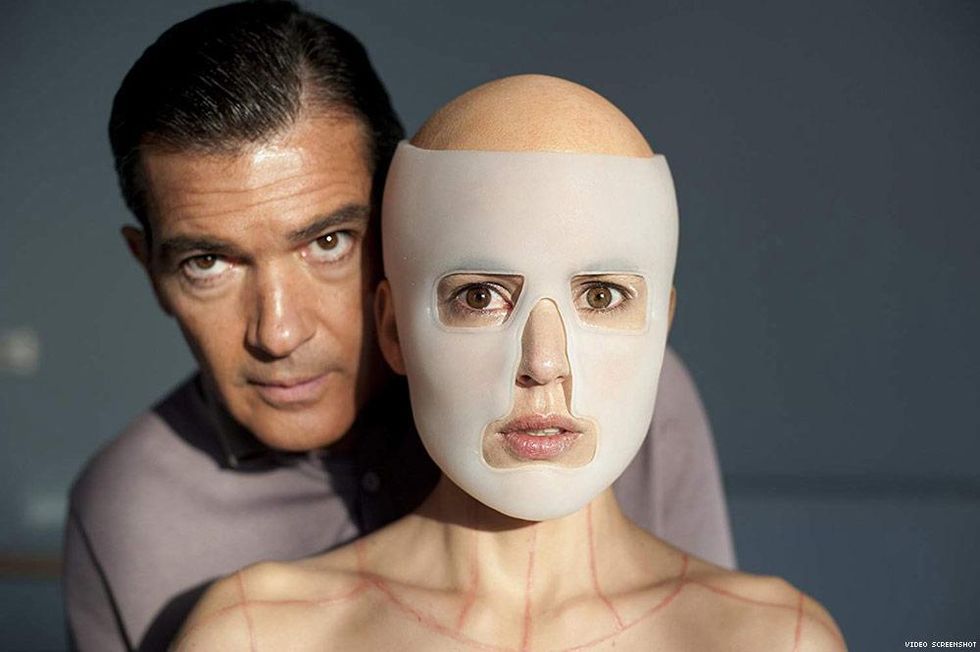
A twisted Spanish psychological horror film written and directed by gay filmmaker Pedro Almodovar, this thriller centers around a famous plastic surgeon portrayed by Antonio Banderas, Dr. Robert Legard. Legard, known for his experiments on human skin, takes revenge on a young man that he believes assaulted his daughter by kidnapping him and turning him into a physical duplicate of his deceased wife. The film is a problematic but captivating portrait of obsession and betrayal. - Jessa Powers
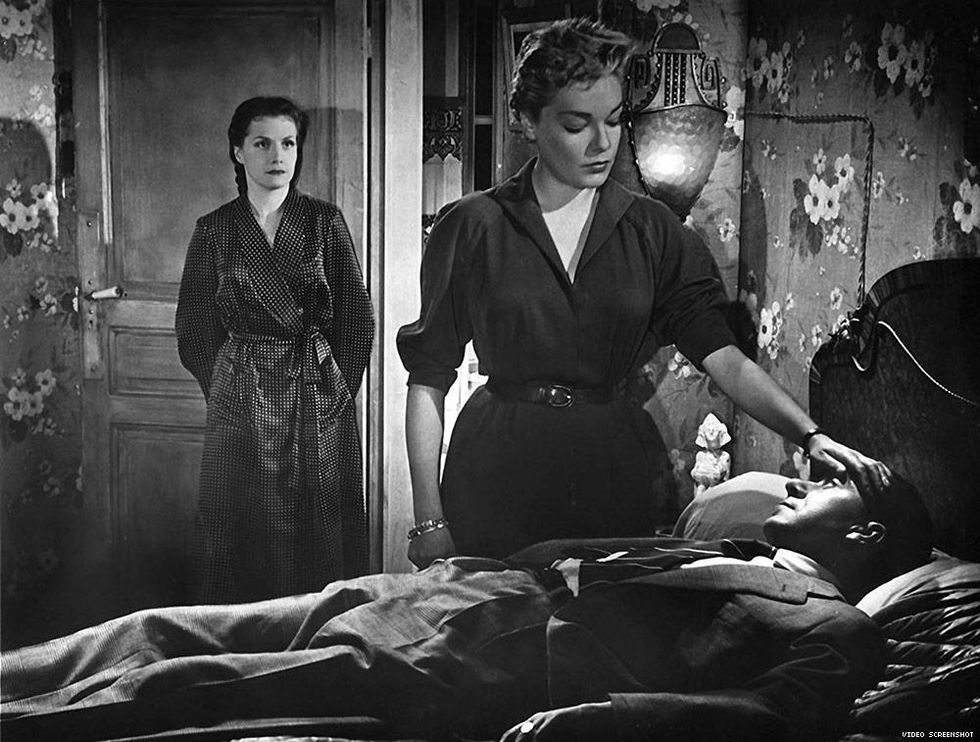
In this French nail-biter, a meek wife and a brazen mistress team up to rub out the man in their lives. After they drug him, drown him, and dump his body in the pool, the corpse goes missing. Where is the abusive lout? The not-so-subtle sapphic undertones between the female protagonists is one of the pleasures of Les Diaboliques, and the mistress role (played by Oscar-winner Simone Signoret) is pure diva perfection. And that ending and epilogue! Les Diaboliques may have the best closure in all of 20th-century horror. -- Neal Broverman
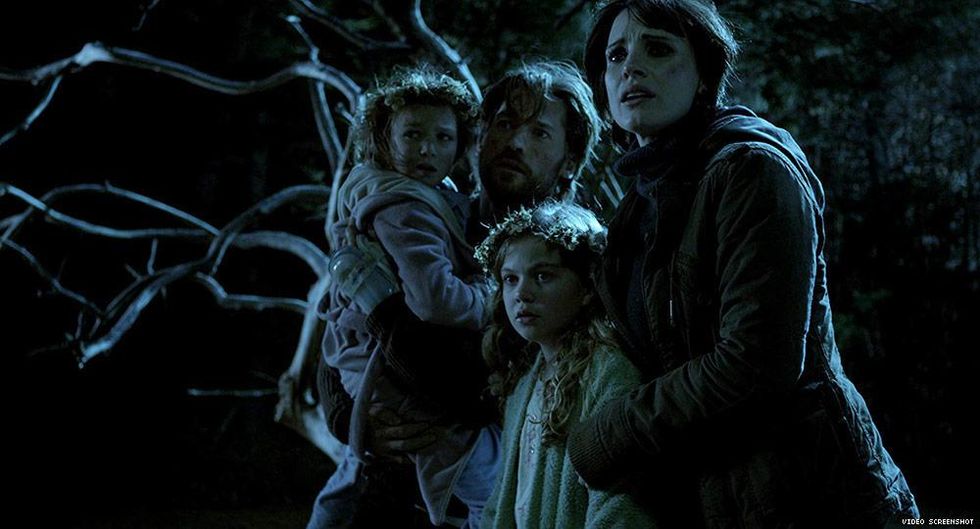
Fans of Jessica Chastain will find plenty to like in the subversively feminist little tale about one mother's twisted love that's masquerading as blockbuster horror film. Produced by the master of thinky thrillers, Guillermo del Toro, and co-starring Game of Thrones hottie Nikolaj Coster-Waldau, the film follows two little girls who vanish from their suburban neighborhood on the day that their parents are killed. Coster-Waldau (as the uncle) and Chastain (as his girlfriend Annabelle) want to adopt the sisters after they are later found alive, feral, and living in a decrepit cabin in the woods. Annabelle does not want children, these or her own (she even celebrates a negative pregnancy test early in the film) so she seems an unlikely mother figure. No worries, the kids seem to have come with their own parental unit, perhaps something odd and unnatural that's been parenting them all these missing months. The edge-of-seat moments in Mama are enough but the story here is really best reading between-the-lines. It's a treatise on who is allowed to parent and who isn't, who gets to make the rules around unfit parents, and it's an issue that's particularly key for LGBTQ parents. - Diane Anderson-Minshall
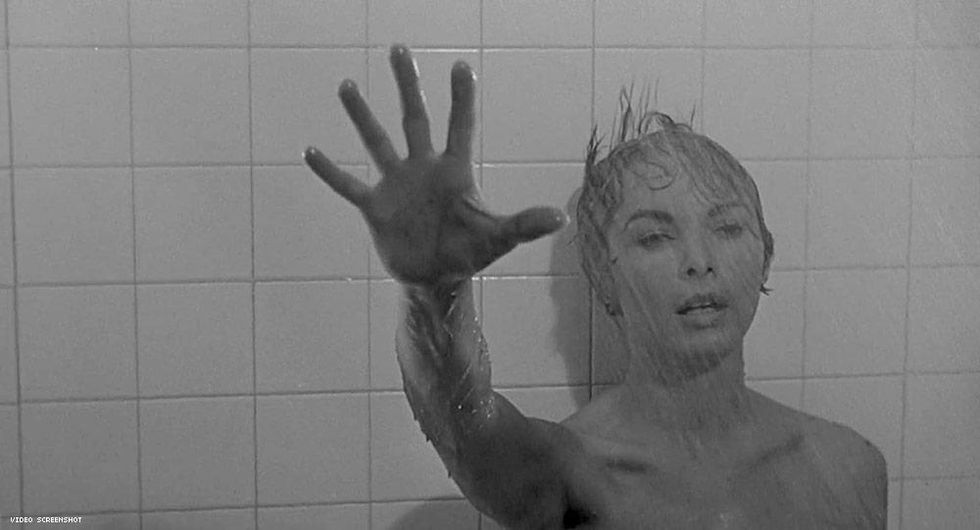
"A boy's best friend is his mother," said serial killer Norman Bates and many gay taxidermists throughout history. Anthony Perkins, who portrayed Bates, was gay or bi, and his casting added an additional layer of delicious subversion to one of Alfred Hitchcock's most celebrated films. Also, the blood in that famous shower scene was actually chocolate. Yum! -- Daniel Reynolds
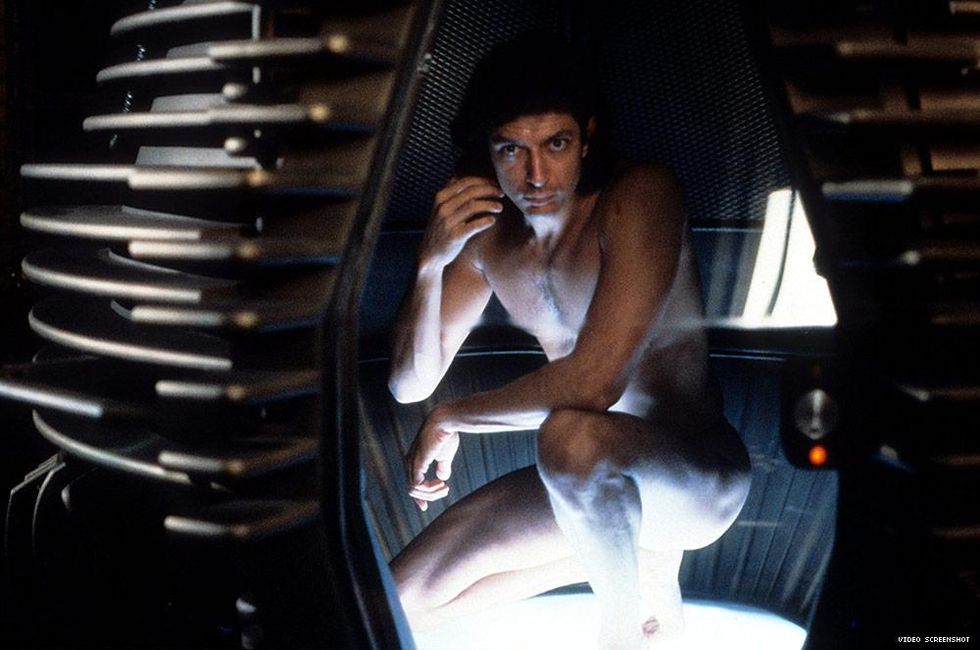
Jeff Goldblum has never looked more delicious or more terrifying than in the 1986 version of The Fly, a remake of the 1958 camp classic. In this science fiction horror directed by David Cronenberg, Goldblum plays a scientist who is determined to invent a teleporter. He tries the device on himself and unwittingly scrambles his DNA with that of a fly. At first he seems to benefit from the mixture, gaining superhuman strength and senses. However, as the insect's instincts grow stronger, Goldblum loses his humanity and morphs into something more monstrous.
Upon its release, many interpreted the film, which is set in New York, as an AIDS allegory. Indeed, a plotline involving Goldblum's pregnant girlfriend, played by Geena Davis, involved worry that the fly's DNA may have been passed on to the unborn child. While Cronenberg maintains the film speaks more broadly about aging and death, the sad tale of an ambitious outsider who died in his prime will have special meaning for many in the LGBT community, who watched their loved ones experience the same fate. -- Daniel Reynolds
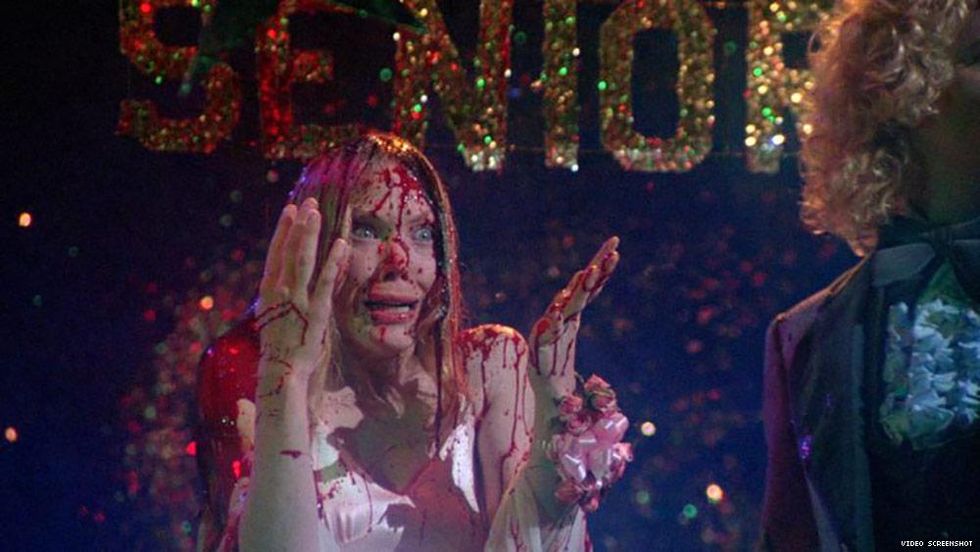
What LGBT person hasn't identified with Carrie? The 1976 film, based on the Stephen King novel, centers on a lonely teenage girl (Sissy Spacek) who is tormented by bullies and a religious zealot of a mother. She gets her revenge at that high-school bastion of heteronormativity, prom, in a bloody, fiery scene that is one of the most iconic in horror history. Lines like "I can see your dirty pillows" also cement this terrifying tale in the pantheon of queer camp.-- Daniel Reynolds
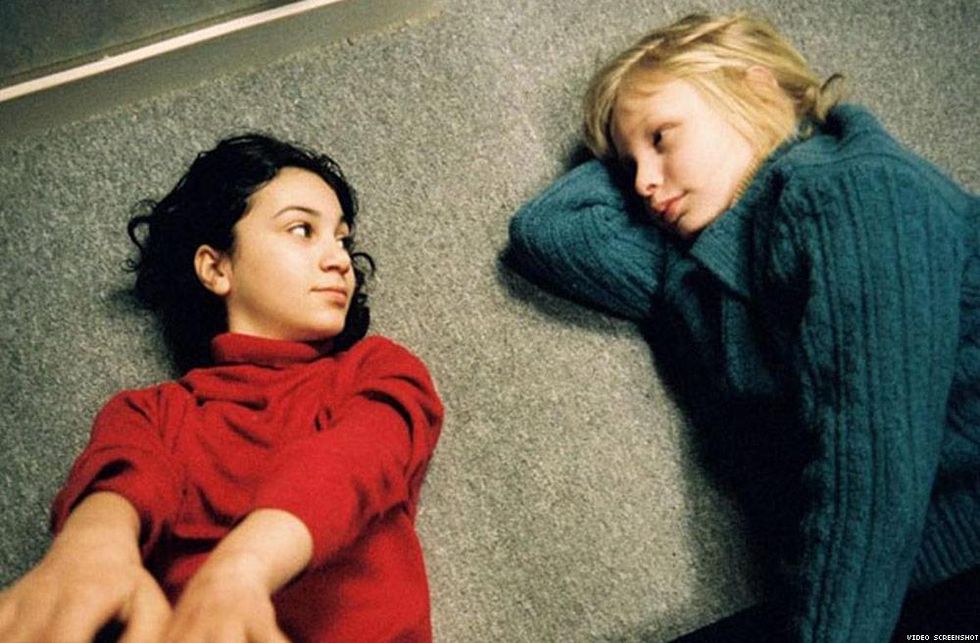
Made at the height of "vampire movie mania", the film centers around 12-year-old outcast Oskar and the eternally 12-year-old vampire Eli. Both characters are treated poorly by various other characters. The LGBTQ community will connect with the themes of loneliness, bullying, and isolation that Oskar faces. There is even an exploration of gender that most films do not get into; Oskar asks Eli to be his girlfriend and Eli responds with "Oskar, I am not a girl." The film is heartwrenching, thrilling, and will resonate with anyone who has faced extreme bullying. - Jessa Powers
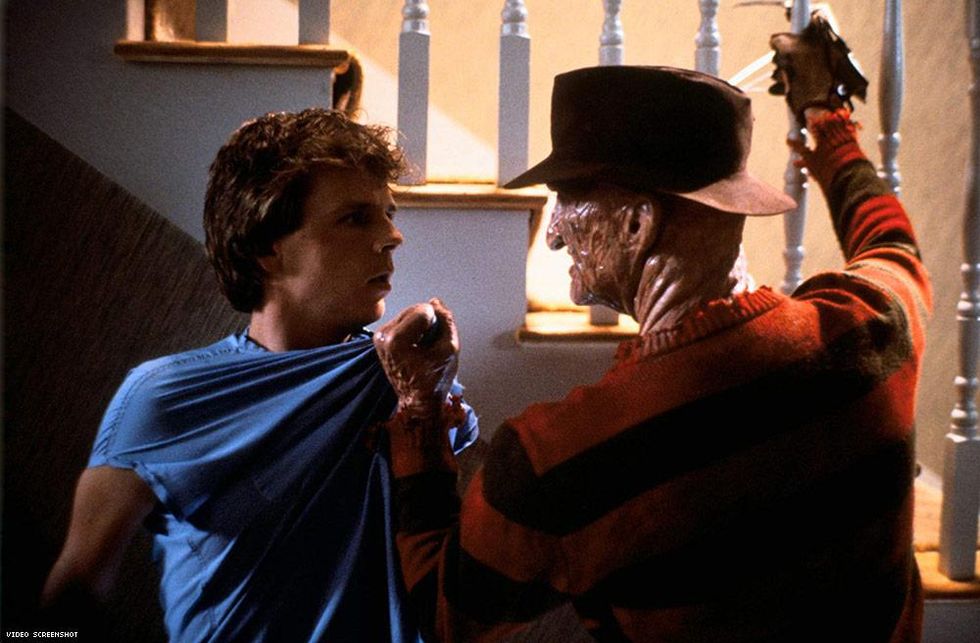
This sequel to Wes Craven's critically acclaimed first Nightmare is said to be full of gay "subtext." Well, that would imply there were veiled references to homosexuality -- instead there were leather bars, male shower scenes, and a "final boy" who is more interested in hanging out with his cute guy friend than making out with the beautiful gal pal. Star Mark Patton was closeted at the time and says many of the gay themes were pushed by writer David Chaskin, who initially denied it. Later Chaskin would admit the opposite and say he was appealing to teenage boys' rampant AIDS-era homophobia. -- Neal Broverman
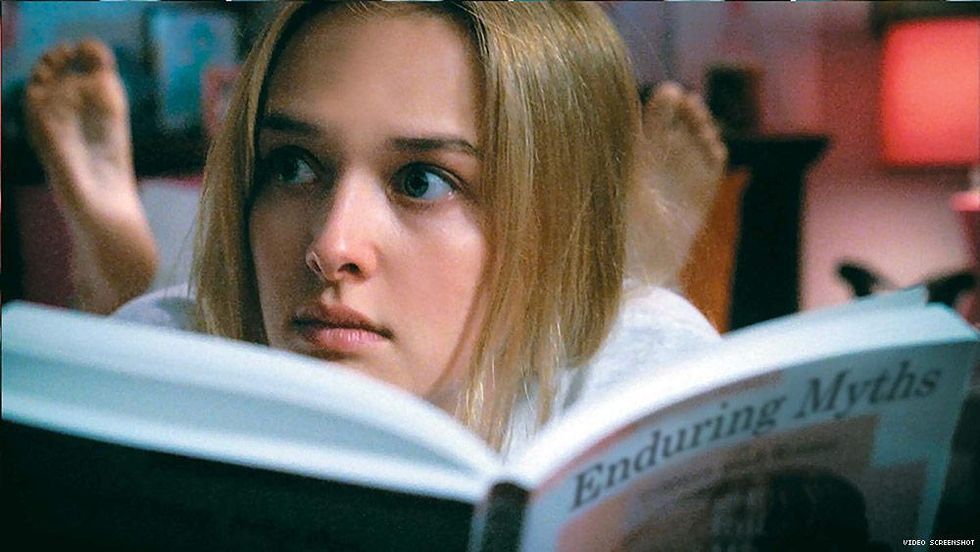
Teeth is an example of the unicorn of film genres: the feminist horror movie. The story centers on a member of a teen abstinence group (Jess Weixler) who finds herself the victim of sexual abuse. In fighting back against male aggressors, she finds herself in possession of an unusual gift: vaginal teeth. Ultimately (and perhaps surprisingly for some), Teeth is a tale about empowering women, queer or otherwise, to defend themselves against the worst aspects of the patriarchy. It also empowers vaginas, which is something everyone should celebrate. -- Daniel Reynolds
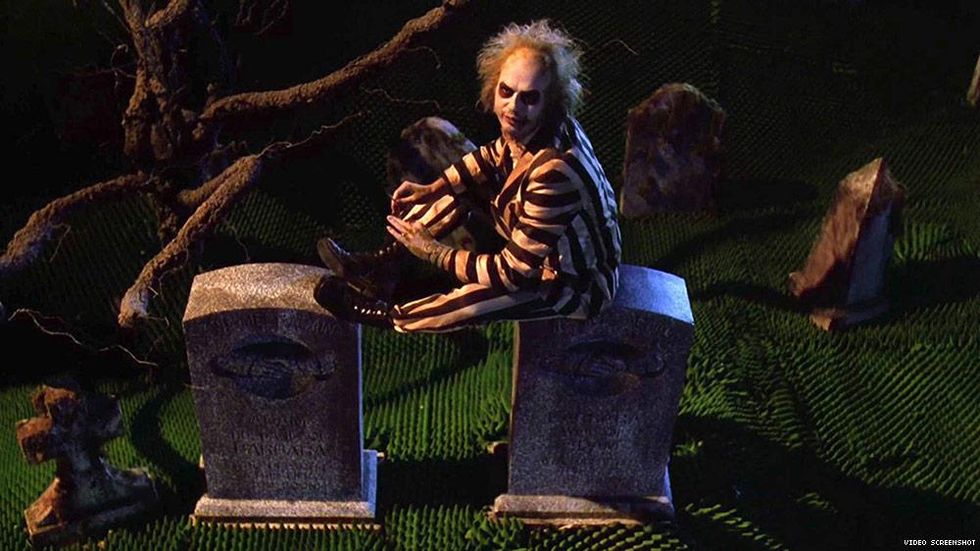
In Beetlejuice, Lydia (Winona Ryder) is the only living person who can see the ghosts played by Alec Baldwin and Geena Davis. There's a reason. As outlined in the handbook for the recently deceased, "live people ignore the strange and unusual." Lydia reasons that "I myself am strange and unusual," which allows her to see what others ignore.
LGBT people also understand what the book and Lydia are saying. Historically, queer culture has revolved around the celebration of the strange and unusual, which mainstream society often overlooks. Beetlejuice is a ghost story. But it is also a coded fable, which notes what can be achieved when the living and the dead, the usual and the unusual, and the straight and the queer work together. -- Daniel Reynolds
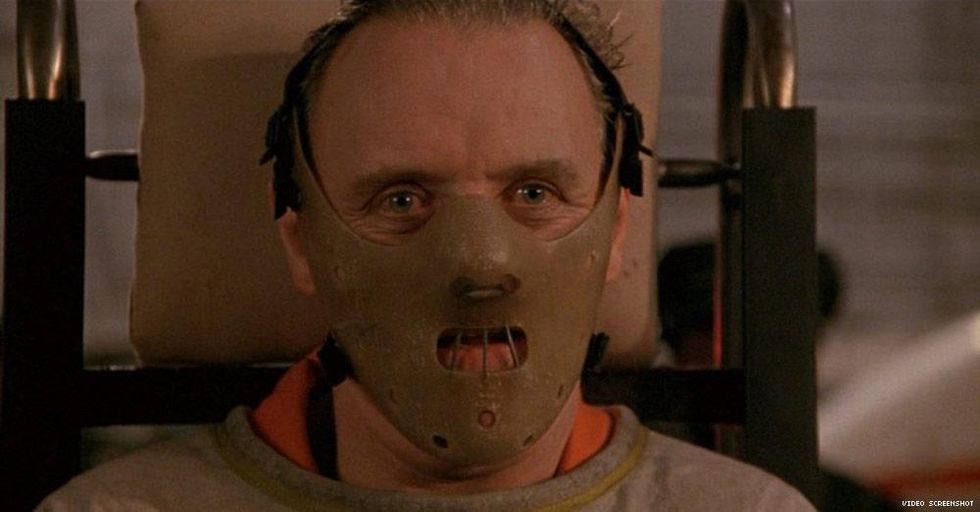
With Jodie Foster in the driver's seat, this chilling thriller not only featured one of the most accomplished lesbian actresses in history, but also Anthony Hopkins' history-making, well-mannered monster. Hannibal Lecter, who many viewers read as queer, was inspired by a real-life gay cannibalistic serial killer; Alfredo Balli Trevino, a prisoner who author Thomas Harris met in Mexico, inspired Lecter and was in fact openly gay. But this film does not include just one queer serial killer, but two; Buffalo Bill, the menace who murders women to use their skin to create a psychotic suit, believes himself to be transgender, but fails to qualify for gender-confirmation surgery due to mental illness. The (false) association between transgender people and criminal behavior sparked the activists of Queer Nation to protest the film during the 1992 Academy Awards. This film pivots towards this LGBTQ theme, but problematically so. Admire its cinematic achievements (and Foster) but keep in mind the devious depiction of the queer people it presents. - Ariel Sobel
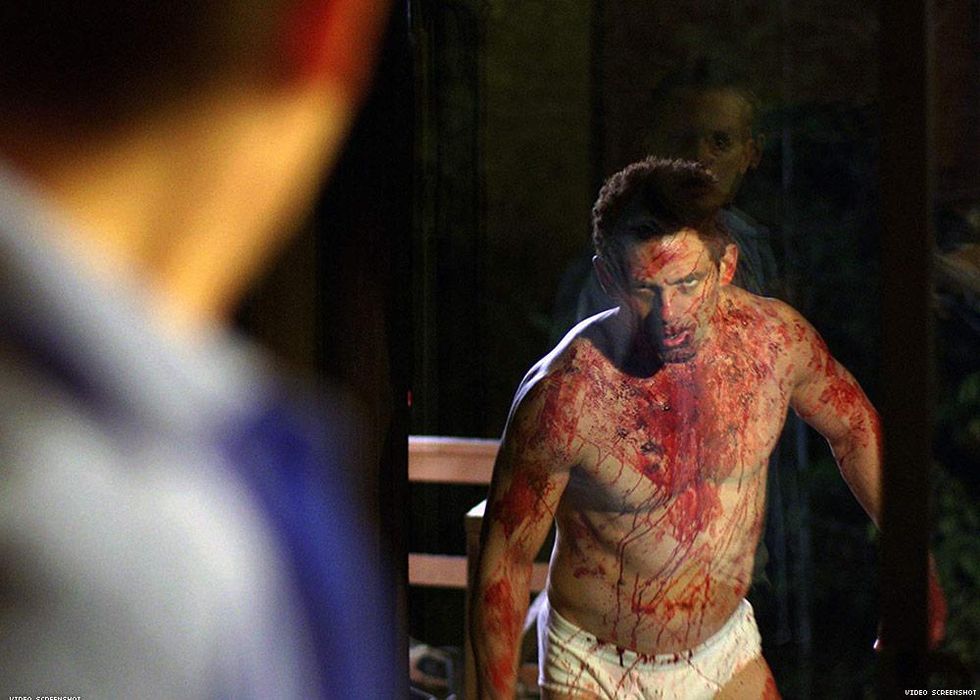
Fans of Ira Sachs' great 2012 gay film, Keep the Lights On, and it's award-winning star Thure Lindhardt, might be surprised by Lindhardt's latest turn as a creatively stifled artist in the clever dark comedy, Eddie the Sleepwalking Cannibal. Lindhardt is Lars, a former darling of the art scene who takes a teaching job at a tiny college in some remote, snow capped Candian town after falling on hard times. One of Lars' new students is Eddie, a mute and gentle hulk of a man, who has been left homeless by a recent death. When his boss convinces Lars to take Eddie in (the film posits that he does so to impress a girl, but we know that's not true), Lars discovers the guy is a sleepwalker, a homicidal one. The sight of Eddie's first kill (of a wild) is horrifying but also strangely enthralling, and it inspires Lars' best painting in years. Soon Lars is pushing Eddie to make deeper cuts to the town's already tiny population, all for the name of art. In the process though, the two men develop a sweet and loving relationship that is makes this film at its heart a sweet-hearted romance between two men who don't even realize they are falling in love. - Diane Anderson-Minshall
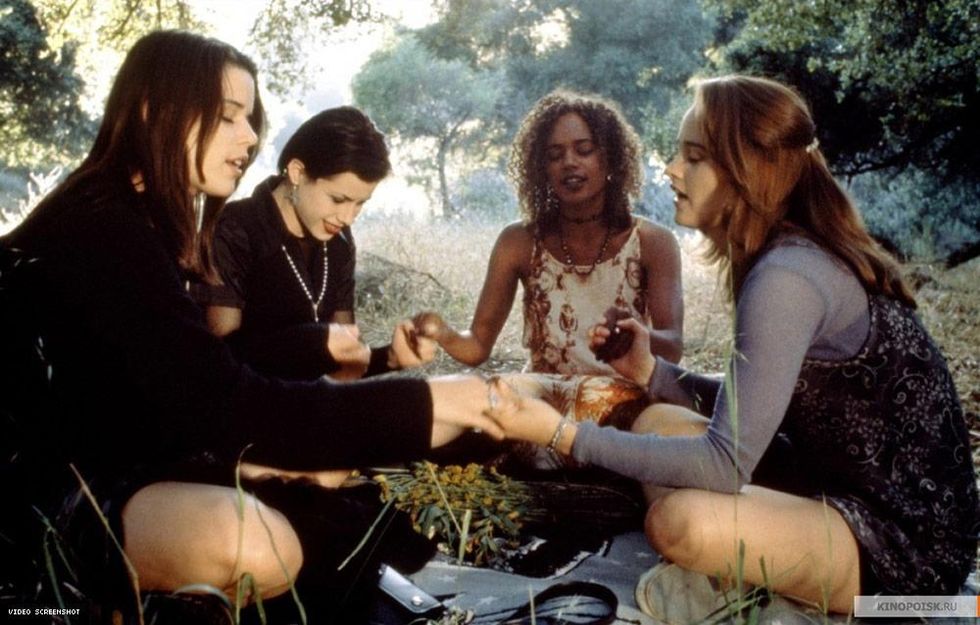
With its feministic centrality, wicked cast and spellbinding storyline, The Craft will ignite your inner witch faster than you can say "light as a feather, stiff as a board." The 1996 film stars Robin Tunney, Fairuza Balk, Neve Campbell, and Rachel True as Catholic school students who swear off boys and focus on their favorite hobby: witchcraft. Although the young women all give powerful performances, Balk steals the show with her insane portrayal of the coven's HBIC Nancy Downs. Her high-goth style, badass attitude, and creepy one-liners made her an icon to high school weirdos and "queerdos" everywhere. -- Levi Chambers
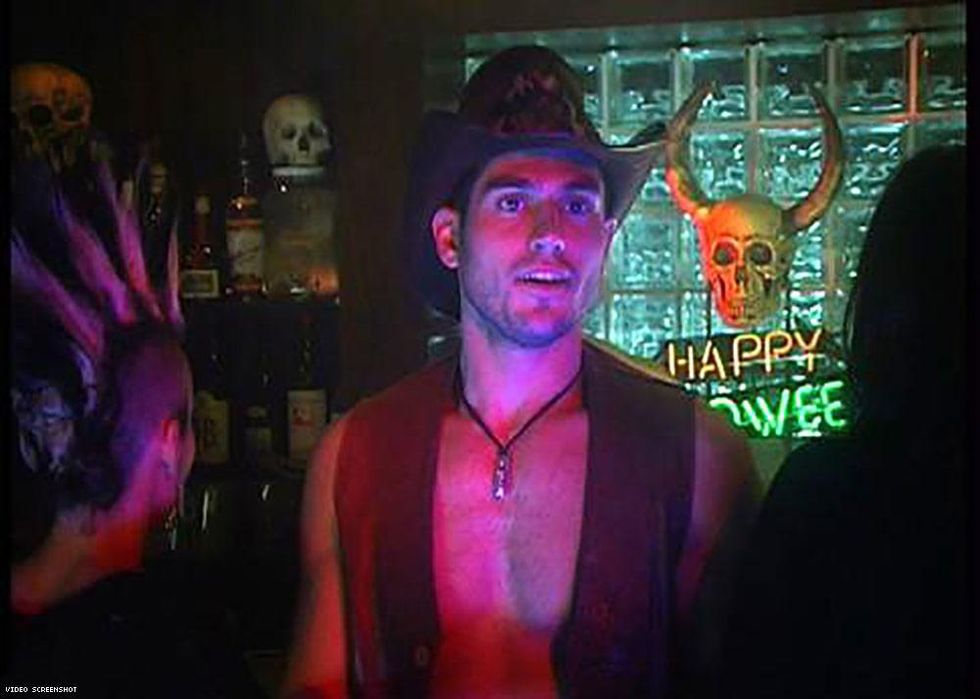
There is not a lot of "subtext" in Hellbent. In fact, the opposite is true. Directed by Paul Etheredge-Ouzts, the film made history as the first gay slasher, which puts the lives (and deaths) of gay men front and center. While straight audiences might also tremble at this bloody romp through Los Angeles's gayborhood, details like its setting in the real-life West Hollywood Halloween Carnaval and depictions of cruising culture will send extra shivers down the spines of queer viewers familiar with its milieu. -- Daniel Reynolds
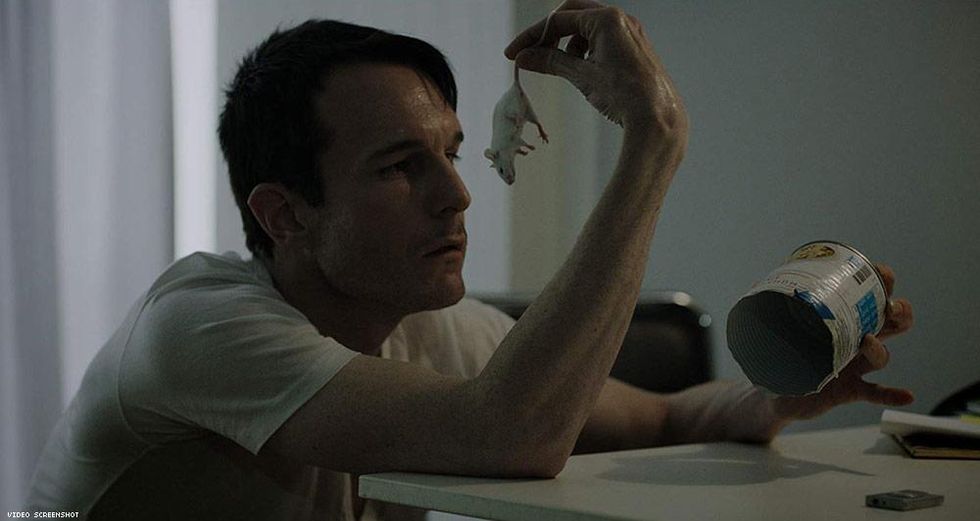
Written and directed by Eron Sheenan, Errors of the Human Body, is on the surface about Canadian geneticist Geoff Burton, a researcher who relocates to the harsh landscape of Dresden, Germany, after his infant son has died of a rare viral genetic mutation and his wife has left him. Adding to the atmosphere is the fact that the film was shot on location at the Max Planck Institute of Molecular Cell Biology and Genetics in Germany, which delivers a disconcertingly "real" feel of a scientific-based story that's both alienating and compelling in its vision. The film asks the questions, uneasily, about how much people should be able to control and what we're allowed to transform ourselves and the world around us. And reading between the lines, it's also about what lengths we can go to in order to become or remain parents. The film is slowly, quietly chilling and Eklund gives one of the year's best performances. - Diane Anderson-Minshall
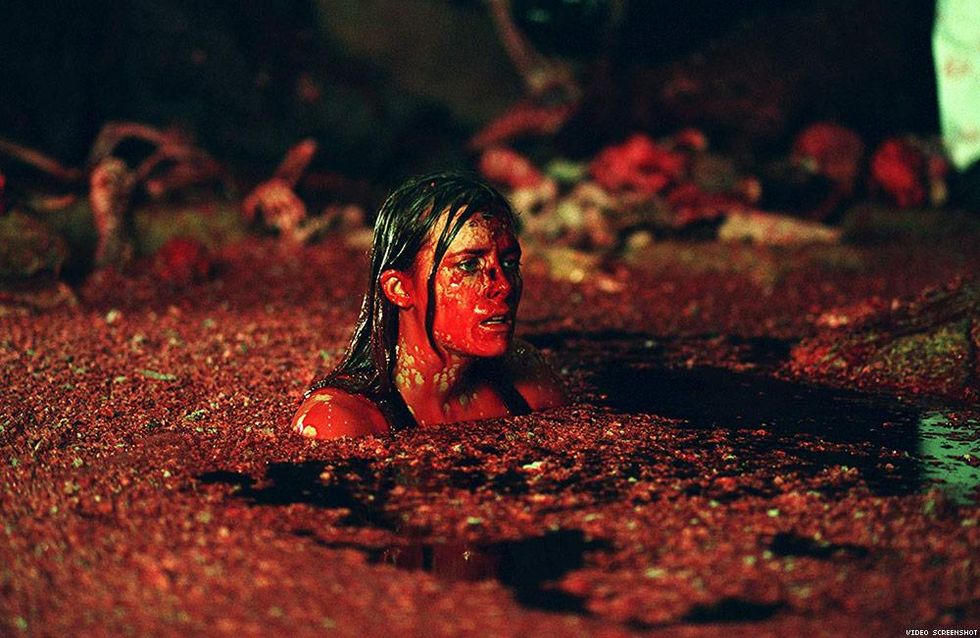
A horror film starring six kick-ass women? Neil Marshall's The Descent was like nothing that preceded it, featuring strong grown women (not helpless girls) spelunking into a cave and encountering some very bad creatures. In the midst of all this was some serious friendship drama and emotional heft. LGBT audiences particularly took to this very bloody British horror, and much of it had to do with how it subverted gender roles in the middle of a pulse-pounding, claustrophobic thrill ride. -- Neal Broverman
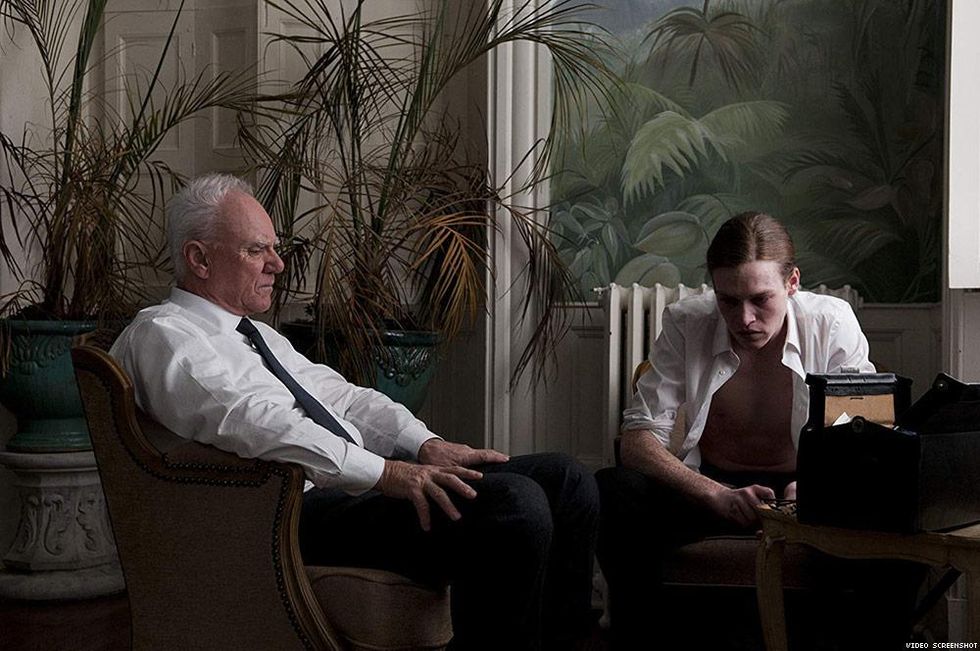
In this dystopian world, Syd March works at the Lucas Clinic, whose profitable business is based on deliberately infecting paying customers with diseases harvested from top celebrities, thus providing a "biological communion" between stars and fans. When he harvests and injects a virus from Hannah Geist, the country's hottest starlet, she dies and he must find out what killed her before it kills him too. As Syd moves through his world, his physical body vividly deteriorating, his fixation on Hannah broadens. But it's never sexual, though, even as it's made clear that Hannah is among the country's most desirable females. It's hard to miss the transgender elements, though, whether it's through bodily function, or through scenes in which the clinic leader tells onlookers, "I think sexual politics are involved because of cell penetration by the virus. The original host takes on the role of the male, and the newly infected takes on the female. The infected changes gender to infect others." - Diane Anderson-Minshall